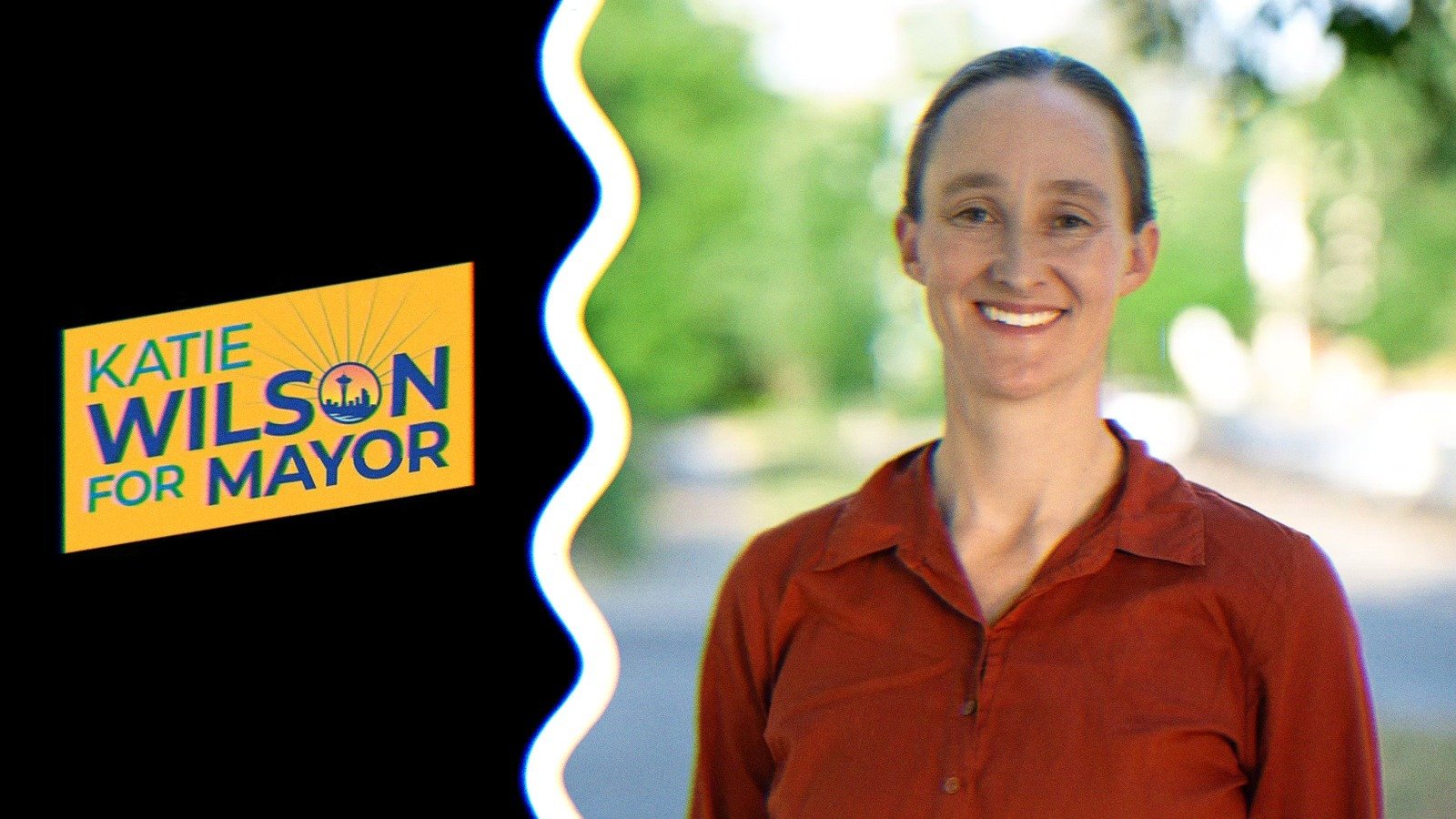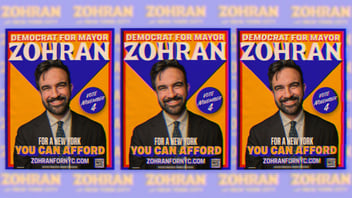Progressive Spotlight: Katie Wilson.
The Pacific Northwest insurgent ran a mayoral campaign on affordability and defeated machine politics.
 Image Description: A photo of Katie Wilson alongside her campaign logo which reads, ‘Katie Wilson For Mayor.’
Image Description: A photo of Katie Wilson alongside her campaign logo which reads, ‘Katie Wilson For Mayor.’
The self-professed Democratic socialist railed against the affordability crisis in the city, promised to improve public transportation and make it cheaper, and lamented the financial toll childcare takes on families. The populist message resonated throughout the city, propelling her from insurgent candidate to Democratic primary winner and eventual mayor-elect.
That’s right: Katie Wilson, a political novice who only months ago made the leap from relative obscurity to city-wide politics, won the mayoral race in Seattle earlier this month, unseating one-term incumbent Bruce Harrell.
If Wilson’s rise sounds eerily similar to that of Zohran Mamdani, who also won his mayoral race in New York City, that’s because both candidates, from coast to coast, pounded the message of affordability. Beyond New York City and Seattle, personal financial anxiety was the defining theme of the 2025 elections, which also featured a Democratic gubernatorial victory in New Jersey, where the winner, Mikie Sherrill, tapped into voters’ financial unease.
In the cases of Wilson and Mamdani, both also had to overcome the machine politics that dominate their respective cities, facing not only political challengers with greater name recognition but also well-funded campaigns designed to stymie their rise.
As the Seattle Times wrote after her election victory: “Few expected this election’s outcome earlier this year. Harrell entered 2025 with a broad base of endorsements and seemed to have closed off most lanes for a challenger either to his left or right.”
Like Mamdani, Wilson saw a viable path to victory as more and more residents became disenchanted with the status quo. Wilson’s personal circumstances—she lives in a 600-square-foot, one-bedroom apartment, relies on public transit, and contends with the high cost of childcare—also made her relatable to voters.
Before entering electoral politics, the Binghamton, NY native who studied at (but didn’t complete her degree at) Oxford College in England spent years as a transit advocate for a group she co-founded called Transit Riders Union (TRU). Serving as the group’s executive director, she played an instrumental role in various campaigns to improve public transit in Seattle, including ORCA Lift, which provides reduced fares for low-income individuals.
Wilson’s campaign materials also tout her role in efforts to pass minimum wage increases in other areas of King County (which includes Seattle), create stronger renter protections, and secure passage of a pandemic-era tax on large corporations in Seattle to support housing and small businesses, among other priorities.
While Wilson found success in civic life outside the halls of power, she ultimately decided to launch her mayoral campaign after the passage of Proposition 1A in February—a payroll tax to support social housing—which Harrell opposed.
Here’s what Wilson told Real Change News in October about her decision to run:
“Honestly, up until Feb. 11, I had no notion of running for office. I’m a big supporter of social housing. I believe it’s an important part of the answer to our housing crisis. And when I saw Prop 1A pass in the landslide, I was very excited. But then immediately after that, I was very worried because, as we know, our current mayor Bruce Harrell was the face of the opposition campaign, the Prop 1B campaign, which was funded by Amazon and Microsoft and the Chamber of Commerce, and was really designed to undermine this funding measure for our social housing developer.”
That battle is part and parcel of what Wilson hopes to achieve as mayor. In that same interview, she acknowledged the financial strain people in the city face every day.
“Everything is really expensive and people are not feeling that that crisis is being taken seriously in City Hall,” she said. “I experienced that cost of living crisis myself. I mean, not nearly as badly as many people do, but I’m a renter. My rent keeps going up year after year. I have a toddler who’s now in child care, and that’s very expensive. So as I just go around the city every day, riding the bus, riding the train, talking to people, it’s just very real to me. And I think that we need city leadership that is going to tackle the affordability crisis and make that a high priority.”
With the election over, Wilson is ready to govern. And she appears energized to tackle the affordability crisis head-on.
“I want universal childcare, K-8 summer care,” she said. “I want world-class mass transit. I want great, safe public spaces where kids can run around with abandon. I want stable, affordable housing for renters. I want social housing. I want much more land and wealth to be owned and stewarded by communities instead of corporations.”
Image Source
- Logo and image courtesy of wilsonforseattle.com. Changes were made.
Rashed Mian is the managing editor of the award-winning News Beat podcast and co-founder of the newly launched Free The Press (FTP) Substack newsletter. Throughout his career, he has reported on a wide range of issues, with a particular focus on civil liberties, systemic injustice and U.S. hegemony. You can find Rashed on X @rashedmian and on Bluesky @rashedmian.bsky.social.


